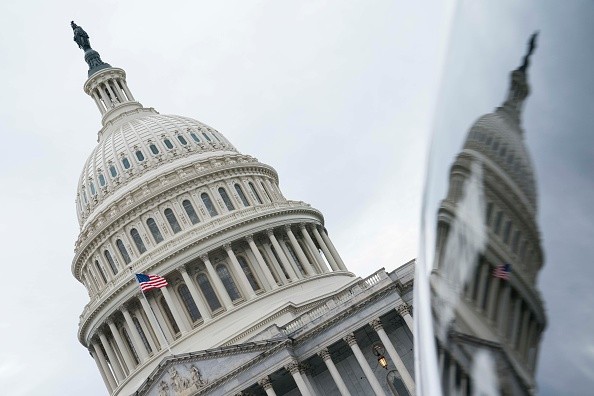Why Did These 6 GOP Senators Vote Against Coronavirus Relief Bill?

The coronavirus relief bill was finally passed by Congress late Monday night after months of delays, but six GOP senators stood firmly against it.
The $900 billion relief bill received overwhelming support from the Senate except for these six GOP senators: Sens. Marsha Blackburn (Tenn.), Ted Cruz (Texas), Ron Johnson (Wis.), Mike Lee (Utah), Rand Paul (Ky) and Rick Scott (Fla).
Fox News said in its report that, the GOP senators had a common theme in their rejection of the relief bill: in terms of the dollar amount and the bill's page count.
Sen. Marsha Blackburn, Tenn.
According to ABC News Channel 9, Sen. Marsha Blackburn's refusal to the coronavirus relief bill had a lot to do with the "extras" found in the nearly 5,600 page document.
In a statement, she said she felt as if the Congressional Democrats "held this relief hostage" to push for $3 trillion in "special interest giveaways."
Read also: Some Workers Will Get $400 Weekly Unemployment Benefit, But Eligibility is Still Up for Question
Even though she said the legislation had some ups to it like development and distribution of vaccines, assistance to schools, and help for small businesses, she added that she can't stand behind such a steep cost of nearly $2.4 trillion in spending.
Blackburn believes this hefty sum of money "will make recovery even harder."
Some of her concerns included expanded visas and Pell grants for prisoners.
Sen. Ted Cruz, Texas
Sen. Ted Cruz also criticized the bill along the same train of thought.
"Had this bill been solely focused on re-opening the economy, getting Americans back to work, and jump starting a recovery, it would have had my enthusiastic support," he said in a statement obtained by ABC 13.
He even found an ally in left-wing Democrat Rep. Alexandria Ocasio-Cortez when she said the legislation was too long to examine well.
Ocasio-Cortez said the bill was too large that lawmakers may not have time to examine it, especially with impending deadlines, to which Cruz agreed.
Sen. Ron Johnson, Wis.
Sen. Ron Johnson was glad a government shutdown was prevented but said he opposed the relief bill due to "dysfunction" in the process. "This monstrosity was 5,593 pages long, and passed only nine hours after the Senate first saw it," he said. He added that the combined spending bill could put the country in more debt than it is already in, said a report from TMJ 4.
Sen. Mike Lee, Utah
Like Cruz and Johnson, Sen. Mike Lee was also unhappy with the short amount of time needed to read thousands of pages.
In a video tweet, he showed the struggle of reading it with just trying to print all of the pages. "Because of the length it is impossible that anyone will have the opportunity to read it between now and the time that we will vote," he said in the video.
Sen. Rand Paul, Ky.
Sen. Rand Paul called the coronavirus relief bill a "spending monstrosity" and said conservatives who "identify the socialism of Democrats...are no better." He said someone who chose to vote "to pass out free money" did not have moral or fiscal integrity.
He urged fellow lawmakers to cut obvious waste in the budget, open the economy and stop putting the country in more debt.
Sen. Rick Scott, Fla.
Sen. Rick Scott also thought the length bill was "unacceptable." According to Miami Herald, Scott was okay with most of the initial demands from Democrats but he was not in agreement with the spending measures unrelated to the pandemic.
He believed the provisions of the relief bill were unnecessary and expensive measures that will have consequences on taxpayers.
He also pointed out to the Congress' history of "enormous and wasteful bills" where the easiest option is just go along with Congress-a route that could harm future generations of Americans.
Subscribe to Latin Post!
Sign up for our free newsletter for the Latest coverage!
© 2026 Latin Post. All rights reserved. Do not reproduce without permission.














